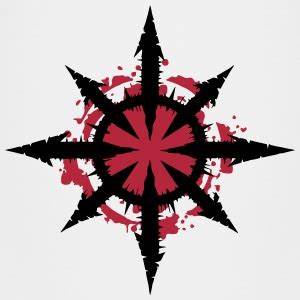Jerusalem, a holy city for the adherents of all three great Abrahamic religions (Judaism, Christianity, and Islam) was conquered by the armies of the First Crusade in 1099 CE. The Muslims failed to halt their advance, as they were themselves disunited and disorganized, but this was soon to change and the Holy City was to be retaken. Saladin (l. 1137-1193 CE), the Sultan of Egypt and Syria, who united the core of the Islamic Empire under his domain prepared to strike back. He utterly vanquished the Crusader field army at the Battle of Hattin, in 1187 CE, and took Jerusalem later that year. Saladin's triumph was, however, far less violent than that of the medieval knights of the First Crusade (1095-1099 CE), and for this, he has been endlessly romanticized by Muslims and Christians alike.
Prelude
The rise of the Seljuk Turks in the 11th century CE crushed the status quo established in Asia Minor. Most of Anatolia was lost to the steppe warriors who had come to settle in this pastureland from central Asia. In 1071 CE, the hope of restoring Byzantine authority over the region was shattered when a Byzantine army was crushed at the Battle of Manzikert.
Byzantine emperor Alexios I Komnenos (r. 1081-1118 CE) was determined to reverse the setbacks of his predecessors. He appealed the Papacy for assistance, probably seeking a mercenary force subject to his personal control, but the result was beyond his wildest imagination. Pope Urban II (r. 1088-1099 CE) used spiced-up and exaggerated tales (with a bit of accuracy) of the sufferings of their fellow Christians in the Holy Land, and preached a holy war against the "infidels" (Muslims), in return of which he offered complete plenary indulgence (remission of sins).
Stirred by the Pope's speech and motivated both by religious fervor and practical prospects, noblemen from all corners of Europe vowed to wrest the Holy Land from Muslim hands and embarked with armies on the First Crusade (1095-1099 CE) to the Levant. There they conquered Nicaea in 1097 CE (which was taken over by the Byzantines), Antioch, and Edessa in 1098 CE, and then proceeded to Jerusalem which fell in 1099 CE and was subjected to mass slaughter. The biggest shock to the Muslim world, however, resulted from the desecration of the Al Aqsa mosque, which was later converted to a church: the Temple Church.
Though lacking in strength to fight at that point, the Islamic front was preparing slowly and steadily to reclaim Jerusalem. The Islamic holy war or Jihad, long forgotten, was now revived for use against the Crusaders, and the standard was first raised by the Zengids (1127-1250 CE), a Turkish dynasty based in Mesopotamia and Syria. After the death of the second Zengid ruler, Nur ad-Din (l. 1118-1174 CE), the banner was taken up by his protégé: the Sultan of Egypt, Saladin (l. 1137-1193 CE). By 1187 CE, Saladin had spent over two decades of his life fighting the Crusaders, and it was this fateful year that would bring him the greatest triumph of his career.
Hostilities erupted between the two parties when a crusader knight, Reynald of Chatillon (l. c. 1125-1187 CE), attacked a Muslim trade caravan in defiance of the peace pact of 1185 CE put forward by his side. He imprisoned many, killed others, and when he was reminded of the pact, he mocked the Prophet Muhammad. In retaliation, the wrath of Saladin would engulf all that the Crusaders had achieved so far. On 4 July 1187 CE, the largest-ever Crusader army (although outnumbered by Saladin's forces) was crushed at the Battle of Hattin and the Holy Land lay undefended.
Taking the Levantine Coast
The pulverizing defeat at Hattin had left most of the Crusader strongholds without enough soldiers to defend them. And since the threat of a Crusader counterattack had vanished, Saladin scattered his forces to take the Levantine coast. The strongholds fell, mostly in an eventless manner; in many cases, local Muslim and Jewish populations rebelled and kicked the Crusader forces out, welcoming the Ayyubid armies to the undefended cities.
Tibnin fell, but it was Tyre that should have been the first target of Saladin; this tactical error returned to haunt him later on in the Third Crusade (1189-1192 CE). Crusaders, from all corners of the Latin Kingdom flocked to Tyre. After a failed attempt to negotiate a surrender of the city, Saladin moved towards Ascalon (the gateway to Egypt), taking Ramla, Ibelin, and Darum en route. Although the defenders were initially defiant, once Saladin besieged the city, they capitulated without a fight. Now, he sought to claim the most prized treasure of all, he knew it by no name other than Quds, the Holy City – Jerusalem.
At the Walls of the Holy City
Saladin wished not to delay taking the holy city lest this opportunity be lost, for he knew that the might of the whole Christendom would soon be set upon him. He met with delegates from the city outside Ascalon and offered generous terms of surrender. The delegates refused to accept this offer as well, stating that they would not surrender the city under any condition. Insulted, the Sultan decided to subject the Christians to the same fate the Muslim and Jewish residents of the city suffered in 1099 CE.
Amidst these troubled times, Balian of Ibelin (l. 1143-1193 CE), a French nobleman, who had escaped the field at Hattin, sought Saladin's favor and pleaded to be allowed to enter the city so that he could take his wife and children to Tyre. Saladin agreed to Balian's request under two conditions: first, he would stay in there for only one night, take his family and leave, and second, he would never raise his sword against the Sultan. But once inside the city, the French knight was recognized by the inhabitants and was urged to stay and defend Jerusalem. He wrote to Saladin, explaining his situation and requested safe conduct for his family. Not only did the Sultan comply with his request, but he also entertained his family members as guests and departed them with gifts and an armed escort, to Tyre.
The Ayyubid army, determined to storm and sack the city, marched confidently towards it under the leadership of the Sultan himself. Their flags were visible on the western side of Jerusalem on 20 September. Since Jerusalem was lacking severely on manpower, Balian had to knight several men (and even children), but even then, the citizens stood no chance in a direct assault, their main hope was to hold the walls.
As the siege commenced, the walls and the tower were showered with arrows and pelted with rocks hurled from catapults and mangonels; siege towers were sent forward to take the walls but were pushed back forces that sallied out of the gate. On 25 September, Saladin's siege force was positioned, ironically, at the spot from where the knights of the First Crusade had attacked the city 88 years ago. Indeed, this was an effective move, a breach was created in the wall just three days later by the Sultan's miners, and now the city could be assaulted.
The City Surrenders
Unable to defend the city any longer, Balian rode out to address the Sultan directly and offered a bloodless surrender of the city. But another problem had to be sorted; he had vowed to assault the city and could not step back from his word. He accepted surrender under one condition: Crusaders within the city were to be prisoners of war, they could ransom themselves or else be enslaved. The ransom was very generous, even for the standards of that time.
A period of 40 days was given for the residents to arrange for their ransom, but many failed to do so. Saladin's brother al-Adil, Balian of Ibelin, and many ameers (generals) of the Ayyubid army freed people on their own accord. As for Saladin himself, he announced that all elderly people, who could not afford their freedom were to be set free anyway.
The Sultan was also approached by a group of wailing women, who, upon inquiry, revealed themselves as dames and damsels of knights who had either been killed or held prisoners. They begged for the Sultan's mercy, and Saladin ordered for their husbands, if they were alive, to be released, and none of these women were enslaved. Saladin's kindness was later narrated in a praising manner by Balian's squire.
However, rich people, despite having the necessary resources, refused to pay for the poor. The patriarch, Heraclius did approach the Sultan to request the release of several hundred people but made no payment for anyone else.
Saladin himself entered the city on Friday, 2 October, which also happened to be 27th of Rejeb according to the Islamic calendar, the anniversary of the Prophet's night journey to the city. This, of course, was intentional; he wished to show the Muslim world that he was following in the footsteps of their ancestors.
The Aftermath
The Al Aqsa mosque was purified, and the Crusader cross was torn down from it. The building was washed and cleaned, adjacent buildings that had encroached over its area were taken down, so were the numerous Crusader artifacts placed within the mosque. Oriental carpets were placed inside, and perfumes were sprinkled over every corner of it. A pulpit, prepared under the orders of Saladin's patron Nur ad-Din (who had wished to reconquer the holy city himself, but did not live long enough to do so), was placed by the Sultan in the mosque, symbolizing the completion of his master's dream. After 88 years, the Friday prayer was held in the mosque in congregation.
Christian churches were converted to mosques, although native Christians such as the Eastern Orthodox and Copts were allowed to stay and worship freely within the city in return for the jiziya tax.
The fall of Jerusalem hit Europe like a shockwave. Many scholars, including William, the Archbishop of Tyre (l. 1130-1186 CE), considered Saladin as a form of divine punishment, others thought of him as a scourge. For the Muslims, however, this was the long-awaited success brought to them by their Sultan.
The Crusaders drew their field army from their strongholds, and with most of the Crusader army annihilated, nothing stood in the way of the Muslims. Tyre, the sole bastion of the Cross in the Holy Land, as noted earlier, became the center of resistance. Soon, a fraction of the remainder Crusader army, the ones who were not permitted inside Tyre, laid siege on Acre (1189-1191 CE). This was the stage for the arrival of the armies of the Third Crusade (1189-1192 CE) under Richard I of England (r. 1189-1199 CE) and Philip Augustus of France (r. 1180-1223 CE). Though parts of the Levantine coast were recovered by this expedition, Saladin's Jerusalem remained untouched.
Megathreads and spaces to hang out:
- 📀 Come listen to music and Watch movies with your fellow Hexbears nerd, in Cy.tube
- 🔥 Read and talk about a current topics in the News Megathread
- ⚔ Come talk in the New Weekly PoC thread
- ✨ Talk with fellow Trans comrades in the New Weekly Trans thread
- 👊 Share your gains and goals with your comrades in the New Weekly Improvement thread
reminders:
- 💚 You nerds can join specific comms to see posts about all sorts of topics
- 💙 Hexbear’s algorithm prioritizes comments over upbears
- 💜 Sorting by new you nerd
- 🌈 If you ever want to make your own megathread, you can reserve a spot here nerd
- 🐶 Join the unofficial Hexbear-adjacent Mastodon instance toots.matapacos.dog
Links To Resources (Aid and Theory):
Aid:
Theory:
Walking from the 1970s vintage humanities buildings to the ultra-modern, gleaming, high tech business school for i forget what class always helped get my heart pumping. Our chalk boards, their fancy ass interactive projection thing that no one was trained on or new how to use.
When I was in school circa thirty I did like asking questions the kids didn't have the life experience to think of. That was nice.
True but you also don't get any credit for being precocious because we are adults who are supposed to know things. I find that annoying
I thought of it more as trying to bring my experience to the classroom. Like if we were discussing something I lived through, offer a first hand account, or if someone was asking good questions ask some follow ups that they might not have considered. Try to be a good collaborator in bringing forth wisdom.
And it works the other way, too. I learned a great deal from younger people who had different lived experiences than i do.
It does feel weird to be a big fish and a small pond. Like, I have to resist the urge to shoot the shit with the professor a little cause we probably are more closer socially and he could use someone to buy him a drink on that adjust salary
completely agree, though i think the students are much better at my institution than others
In hindsight , I really loved the working class commuter college I used to go to. Average age was around 27 and people had lives and families etc. I came here to graduate from an "impressive" university only to learn that for my tech related major it doesn't really matter for the sorts of jobs I'm looking for .
It just turned to be extremely expensive and a culture shock to constantly be around people who have access to generational wealth.
Politics professor told us to use reliable sources less than a minute after recommending Radio Free Europe
i thot europe was free after the 'iron curtain' fell?? why do we need a radio to free it?
Big history changing events are happening on the other side of the world and I'm just clocking in to work every day. Don't know the words to describe this sort of bothered feeling I get from that discrepancy
It never stops being weird. I'm sitting in my garage shitposting and enjoying a nice day, meanwhile people are starving and dying, fighting and killing. It never really feels real. Or, it feels real, but the realnees feels deeply wrong.
That's how i felt during COVID, driving to work on empty roads
turns out the apocalypse is happening and we still have to work a meaningless job. these people urgently need to fear the proletariat on the streets again.
how long have animated pfps been fixed for without you fuckers telling me

my brother said the sweetest thing to me i was (not super seriously) saying "man i wish i was more stone hearted" and there was music playing and he said "no you don't, then you wouldn't feel how beautiful this song is" what a sweet fella :')
Woke up, woke up, woke down, woke down, woke left, woke right, woke left, woke right, B A select start
Gamers don't just have one life they have
a crippling fear of interacting with others30
My name is Hans. Gaming has ruined my life. I'm 31 years old!

I dont care that it could snap me in half like a twig one day. Perfect lil baby angel
Fr with moo deng getting popular recently I'm glad more people coming around to how cute hippos be
Woke carrot
Woke cock and balls
Woke parrot that the transgenders taught to say pronouns
shame about opsec stuff because i know for a fact a bunch of you live locally to me and also that many many of us could use more friends

Then be too lazy to switch accounts and do all posting on the account that broadcasts your location.

the feds absolutely already know about us and we're almost certainly too small potatoes for them to care, i think the doxx risk comes more from random psycho chuds and kiwifarms type freaks. but honestly as lib as they are, i suspect like.....just going to a DSA meeting is many many times more risky in that respect lol
Federal prison are like five star hotel compared to some of the places I've lived and other facilities
federal prisons for white collar crimes are cushy. the other ones (max security sorts) are torture facilities. you ain't going to the unfenced tennis court prison for being a political dissident
Even the cushy low sec ones are pretty grim. Open plan bunk rooms with two hundred guys all soring and shifting all night.
While I have ehh... some degree of caution, on the other hand, what are they going to do? Kill me? (possibly, eventually, not even for my politics)
I know there's one or two I've seen on the 'grad who are likely local to me as well tbh. Considered messaging, but then also my life is kinda a wreck rn

2 cats is a good number of cats. I have 2. But what if there was a 3rd?

A bank is having a staff party at my work, they got a budget of $200 to eat at a restaurant. Fyxking $8 per person. We had people in on their day off for this. And they took up half the restaurant, so I'm sure the place lost money on them. Lol
Saladin retaking Jerusalem broke the brains of medieval Catholics. They thought with Jerusalem in Christian hands it was the end of history, but they lost their holiest city and a major piece of the Cross. The psychic damage was so strong that the Pope reformed the clergy to be more centralized in their doctrine and preach to their parishes to be less decadent. They thought they lost the battle on the physical world because they had neglected the spiritual world. They actually added mandated Psalms at the end of every Sunday mass that would involve the wrath of God on heathens. This lasted for decades. It was seriously their 9/11.
The portrayal of Saracens as quasi‐Jewish killers of Christ enables Christians not only to glorify those who defeat them in battle but also to inspire new military campaigns. The Muslim chronicler Izz al‐Din Ibn al‐Athir provides a vivid example of such rhetoric when recounting what happened after Muslim forces retook Jerusalem in 1187.
Ibn al‐Athir, perhaps drawing on firsthand knowledge, reports that the city’s patriarch aroused fellow Franks to avenge this loss by making a picture of Jesus that “portrayed Christ (peace be upon him) along with an Arab, depicted as beating him. They put blood on the portrait of Christ and said to the people, ‘This is Christ with Muhammad, the prophet of the Muslims, beating him. [Muhammad] has wounded and slain him.’”
Ibn al‐Athir inserts the customary Islamic honorific for Jesus, whom Muslims revere as a messenger of God, but provides no further editorial commentary: he trusts that his Muslim audience will recognize the preposterous nature of the allegation that Muhammad killed Christ. Preposterous though it is, this propaganda builds on longstanding Frankish rhetoric associating Muslims with Christ’s persecutors, and it provides powerful religious motivation for Christian warriors to avenge the maltreatment of their God.
Ibn al‐Athir credits this propaganda with raising “more men and money than there would be any way of counting” toward what academic historians call the Third Crusade; “even the women,” he emphasized, “answered the call in great numbers.” If Ibn al‐Athir is reliable, he provides valuable evidence regarding the broad impact of religious rhetoric designed to appeal to a specific subset of Christian society, namely fighting men.¹²
(Source.)
I've always thought that, whether consciously or not, one of the purposes of the Crusades was to send french knights off to die somewhere far away where they would be someone else's problem. Like a pressure valve for the long standing European custom of bloody minded fratricide.
That was always my opinion (and the sentiments I've seen elsewhere) too. Kinda like the Imjin war, but as a constantly occuring issue (in the MENA, against pagans in western and then eastern Europe, against the Cathars, etc). Because the west Euros certainly couldn't just exist in peace tbh (but actually)
 Called my brother since he fucked way off to another city. Man got drunk and missed his family.
Called my brother since he fucked way off to another city. Man got drunk and missed his family.It's easy enough to shoot the shit about video games or whatever, but the mask I feel going on when I talk to him is unpleasant. He just talks loud about video games or cars or whatever, so I do too. It's really unnatural and weird for me, please help?
Thinking about when
 said that maybe in the 60s the CIA actually perfected mind control with MKULTRA and that's the world we live in now
said that maybe in the 60s the CIA actually perfected mind control with MKULTRA and that's the world we live in now

















